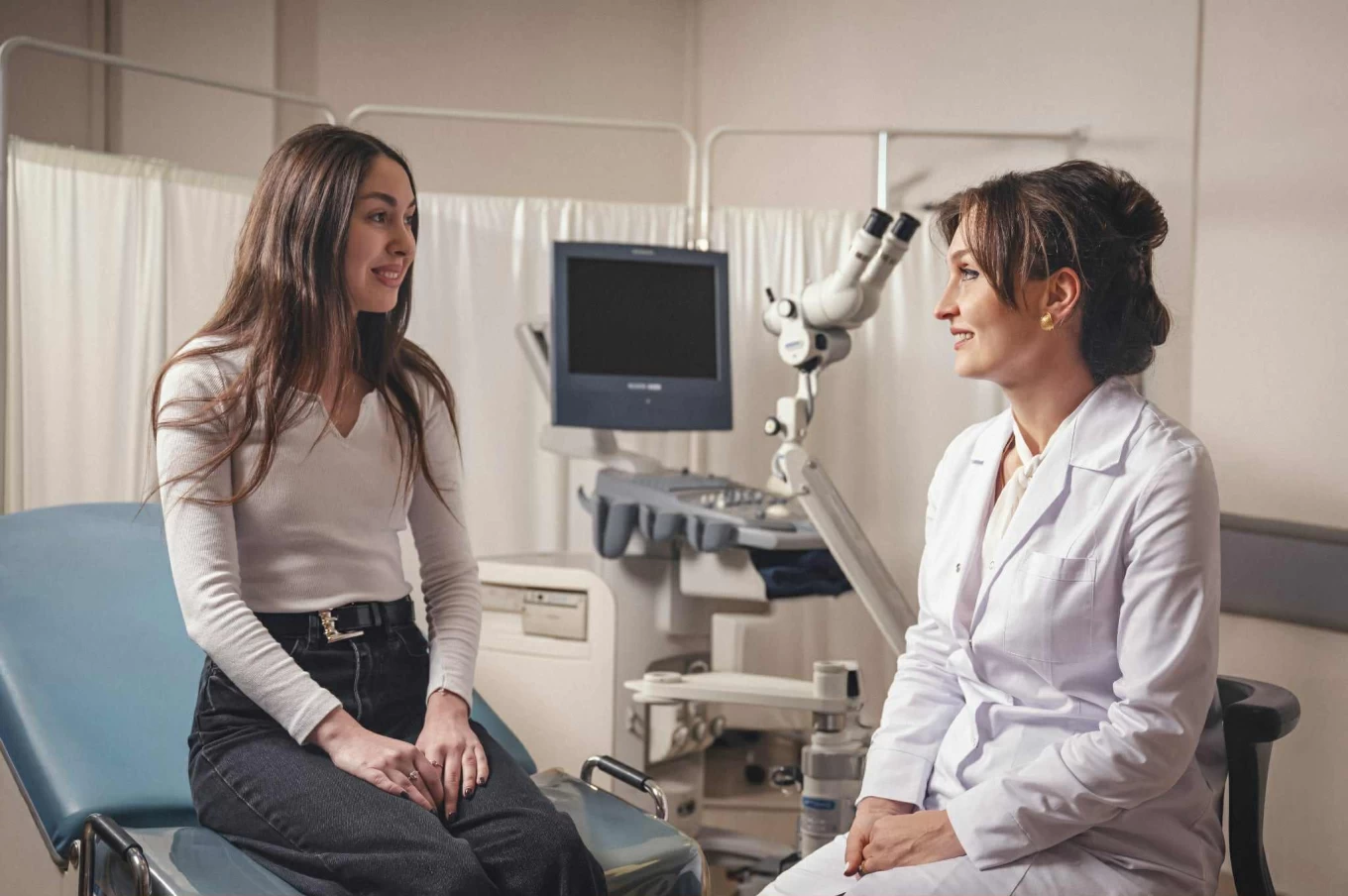Department of Gynecology
Conservative Gynecology is a comprehensive field of medicine that is closely connected with specialties such as endocrinology, oncology, urology, immunology, genetics, dermatology, and infectious diseases. Each of these fields is causally interconnected. Therefore, a thorough and comprehensive examination of the patient is of particular importance, as it allows for timely diagnosis of diseases and the prevention of severe irreversible complications.
The state-of-the-art material and technical base at Todua Clinic enables us to conduct timely and comprehensive examinations of patients in one space and provide appropriate treatment.
In the Department of Conservative Gynecology, the following diseases are diagnosed and treated with medication:
- Inflammatory and non-inflammatory diseases of the pelvic organs
- Sexually transmitted infections
- Anatomical pathologies of the uterus and ovaries:
- Ovarian cysts, endometrial hyperplasia, uterine fibroids
- Genital endometriosis
Gynecological Endocrinology
- Menstrual cycle disorders in the pubertal, reproductive, peri- and postmenopausal periods (excessive, acyclic bleeding, reduced menstrual cycle, menstrual irregularities)
- Polycystic ovary syndrome (PCOS), acne, hirsutism, endocrine gland imbalances and related reproductive disorders (hypothyroidism, hyperprolactinemia, congenital adrenal gland pathologies, metabolic cycle disorders)
- Premenstrual syndrome (PMS) (premenstrual migraines, premenstrual allergies, premenstrual dysphoric disorder...)
- Recurrent miscarriage - diagnosis and treatment of causes for 2 or more spontaneous abortions
- Diagnosis and treatment of cervical and breast cancer precursor and non-cancerous diseases (screening tests - Pap, Tet, colposcopy, HPV DNA test for high oncotype papillomavirus detection, breast ultrasound, mammography)
- Timely diagnosis and correction of climacteric period disorders - psycho-emotional, vegetative-vascular, uro-genital disorders (vaginal dryness, reduced libido, pain during intercourse) and osteoporosis
- Family planning and contraception
Infertility Diagnosis and Treatment
- Diagnosis and treatment of causes of infertility
- Determining basal hormonal profile during one cycle
- Folliculometry
- 3D ultrasound
- Evaluation of the anatomical status of the fallopian tubes
- Sperm analysis (spermogram)
- Ovarian stimulation in a natural cycle
- Intrauterine insemination
- Preparing patients for artificial insemination
Gynecology and Family Planning
Gynecology plays an essential role in family planning. The knowledge and experience of gynecologists greatly assist individuals in making the best decisions regarding their reproductive health.
At Todua Clinic, gynecologists are well-versed in various contraceptive methods, including barrier methods (condoms), hormonal methods (contraceptive pills, etc.), intrauterine devices (IUDs), and implants.
They provide detailed information about the effectiveness, benefits, and potential side effects of each method, allowing individuals and couples to choose the contraceptive method that best suits their preferences and health needs.
Family Planning
Family planning is a broad process that involves decisions about when to have children, how many children to have, and how the pregnancy should progress.
The involvement of an experienced gynecologist is essential in this process. A gynecologist will advise on natural methods of family planning and assist in selecting other reproductive methods.
Sperm Analysis (Spermogram)
Sperm analysis, also known as spermogram, is the examination of semen. Infertility in 40-50% of cases is caused by male factors, so sperm analysis is the first necessary step in assessing male fertility.
When is Sperm Analysis Done?
If a couple is struggling to conceive, sperm analysis is one of the first tests recommended to assess male fertility. It can also be part of routine health check-ups, especially if the male has a history of reproductive health problems.
Components to Check:
- Sperm count: Determined by the number of sperm cells in one milliliter of semen. A normal count is considered to be around 15 million sperm per milliliter.
- Sperm motility: Assesses the sperm’s ability to move effectively. This is crucial for sperm to reach and fertilize an egg.
- Sperm morphology: Examines the shape and structure of the sperm. Abnormal sperm morphology may impact fertility.
- Volume: Measures the total amount of semen produced in one ejaculation.
- pH level: Checks the pH of the semen. Abnormal pH may indicate an issue.
Normal Sperm Analysis Results (WHO Guidelines):
- Total sperm count in semen: 39-928 million
- Semen volume: 1.5–7.6 mL
- Sperm concentration: 15-259 million per mL
- Total motility (progressive and non-progressive): 40–81%
- Progressive motility: 32–75%
- Sperm morphology: 4–48%
How to Prepare for the Test
It is generally recommended to refrain from ejaculation for 2-5 days prior to the semen sample collection. This ensures accurate sperm parameters.
It is important to avoid substances such as alcohol, tobacco, and drugs, as they can affect sperm quality.


